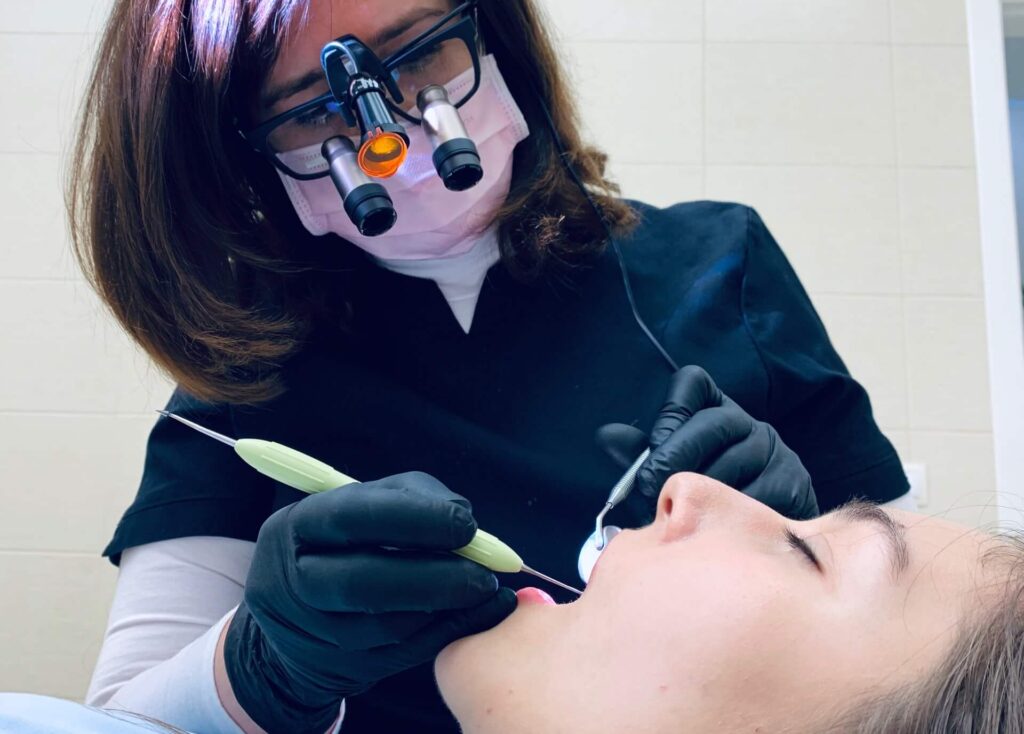What is burning mouth syndrome (BMS)
Burning mouth syndrome (BMS) is a phenomenon that will cause a burning feeling to occur in your mouth. There is no specific area where this feeling will occur, it can be felt anywhere. Generally, it occurs most often on the roof of your mouth, tongue, or even the lips. You may experience this temporarily, or it could be on ongoing issue.
What Does Burning Mouth Syndrome (BMS) Feel Like?
Summary
The burning can feel like anything from numbness or tingling to a scalding hot sensation.

What Causes burning mouth syndrome?
It can be very difficult to diagnose the main cause of BMS.
There are two types of BMS:
Secondary Burning Mouth Syndrome
This type of BMS actually has no direct cause, it could even be a symptom of a disease or an illness. There is research indicating it may be an issue with the taste and sensory nerves of your central and peripheral nervous systems.
However, there are some tests that can be run to check for anything that may be considered out of the ordinary:
- Blood test
- Oral swab
- Allergy test
- Salivary flow test
Primary Burning Mouth Syndrome
The cause of primary BMS is considered to be direct. There are a number of probable causes for secondary BMS:
- Hormonal changes
- Allergies
- Dry mouth
- Medication
- Nutritional deficiency, such as iron, zinc, or B vitamin deficiency
- Mouth infection
- Acid reflux
Summary
- Primary burning mouth syndrome has a direct cause
- Secondary burning mouth syndrome has a indirect cause

The causes for burning mouth syndrome are so varied, by default, the treatments are as well.
Primary Burning Mouth Syndrome Solutions
- Sucking on small ice chips, drinking cold beverages.
- Stay from acidic foods, the higher acidity level in your mouth can cause burning.
- Avoid hot or spicy foods that may trigger your BMS even more.
- If you notice your BMS intensifies after brushing your teeth, change your toothpaste.
- Manage your stress by exercising, meditation, socializing, etc.
Secondary Burning Mouth Syndrome Solutions
Since the cause is an underlying one, the BMS will generally continue until the cause is fixed. Some of the underlying causes for secondary BMS are:
- Acid reflex – Medication, or change in diet can help relieve some BMS symptoms.
- Dry mouth – Discuss ways to increase saliva production, or & possible take more vitamins.
- Mouth infection – Curing the infection may help to lessen the symptoms of BMS
Summary
- To cure secondary BMS the underlying health issue may need to be remedied first.
- Primary burning mouth syndrome may just go away on it’s own.

Who is most at risk for burning mouth syndrome
- Post-menopausal women – Reduced estrogen levels have been in a contributing factor. A drop in estrogen will cause a change in the sensitivity of the taste buds. Men and young people can also experience this, usually, their BMS is accompanied by another condition called geographic tongue.
- Genetic factors – Some people have different levels of sensitivity to taste, this is purely genetic, they are known as, “non-tasters”, “medium-tasters”, and “super-tasters”. If a women was a super-taser, but has lost that ability, they may be more at risk to BMS.
- Some medical issues have been more closely linked with BMS than others, Sjögren’s Syndrome, diabetes, thyroid disease, and liver issues.
